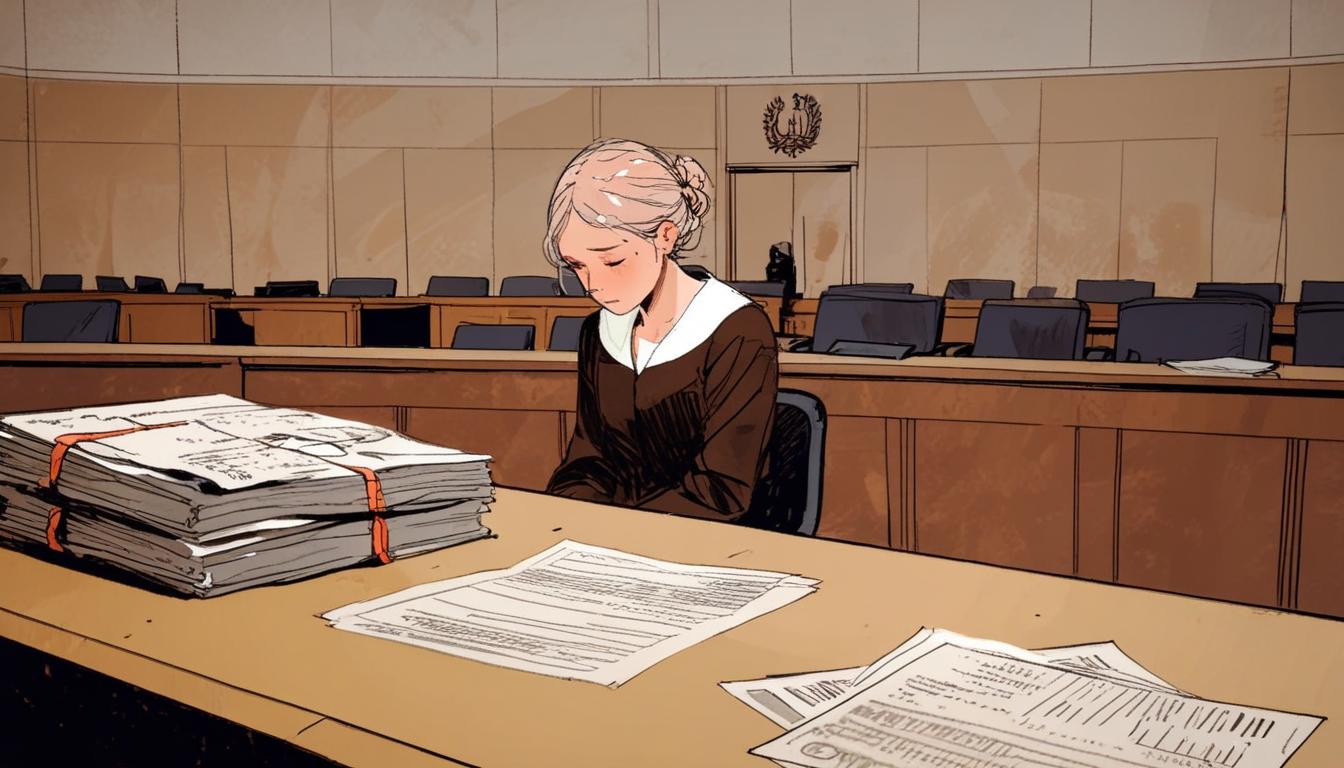The Ordeal of Nicola Packer: A Call for Reform in UK Abortion Laws
In November 2020, while the UK was grappling with the chaos of lockdown due to the coronavirus pandemic, Nicola Packer faced a shocking revelation: a positive pregnancy test. At 41 years old and amid personal uncertainty, she'd thought she was perimenopausal. Despite her initial disbelief, Packer knew without hesitation that she wanted to terminate the pregnancy. Thanks to emergency legislation introduced during the pandemic, she was able to obtain abortion pills through a telemedicine consultation, a significant shift in access to reproductive healthcare.
However, what unfolded after taking the pills was harrowing. Packer delivered a fully formed baby hours later, an event that would soon be eclipsed by the ordeal that followed. Seeking medical care at Charing Cross Hospital for significant bleeding, she was redirected to Chelsea and Westminster Hospital by unhelpful staff who did not provide an ambulance. Feeling compelled to keep her medical history private, she refrained from disclosing that she had taken the abortion medication.
When she eventually revealed this information to a midwife, the consequences were devastating. The police were summoned, and Packer found herself arrested in hospital, her electronic devices confiscated as her legal journey began. This incident marked the start of a grueling four-and-a-half-year legal battle, culminating in a trial that would expose the most intimate details of her life in open court.
Throughout her trial, Packer maintained a mixture of composure and emotional turmoil. Her defence barrister, Fiona Horlick KC, highlighted that while the ordeal in itself was tragic, it should not have been criminal in nature. “The facts of this case are a tragedy but they are not a crime,” Horlick asserted during the proceedings. As Packer relived a deeply traumatic chapter of her life, the emotional impact was palpable; her friends rallied around her in court, providing critical support through moments of intense questioning.
The trial's conclusion did not signal an end to the public scrutiny over Packer's life. Her medical history, including past terminations and intimate relationships, was laid bare, prompting a wave of outrage regarding the approach taken by the Crown Prosecution Service (CPS). Criticism echoed among medical leaders and advocacy groups, who pointed out that prosecutions under the existing laws not only invade personal privacy but also exacerbate existing trauma, arguing that the legislative framework is antiquated and harmful.
Amidst the backdrop of Packer's experience, calls for reform of abortion laws have surged. The rise in prosecutions surrounding abortion—prompted largely by regulations rooted in 19th-century legislation—highlights the urgent need for modernisation. Medical leaders have decried the trauma inflicted by such prosecutions, characterising them as cruel and unnecessary, and advocating for a shift in perspective that sees abortion as a healthcare issue rather than a criminal act.
Tonia Antoniazzi, a Labour MP who observed Packer's trial, encapsulated the sentiments surrounding this case, stating, "Nicola’s experience... includes being taken from her hospital bed to a police cell, denied timely access to essential medical care, and spending every penny she had on lawyers defending her case." These events depict a broader national scandal regarding how vulnerable women and their rights are perceived under current legislation.
Further compounding the urgency of this reform is the backdrop of rising prosecutions against women seeking abortions. Recent statistics indicate an unprecedented increase in such cases, prompting organisations like the British Medical Association to call for immediate legislative revisions that safeguard reproductive rights. The complexity of these issues underscores the need for a societal reassessment of abortion laws, particularly as the implications of current practices continue to unfold.
As Packer emerges from this harrowing experience, the questions surrounding her case resonate beyond her personal ordeal. They span legislatives boundaries, touching on core issues of women’s rights and healthcare access. Abortion laws written at a time when women were not even afforded the right to vote are increasingly seen as inadequate, leading to discussions about broader ethical considerations and the healthcare system’s treatment of women.
As the nation awaits potential changes to its legal framework regarding abortion, Packer’s case stands as a poignant reminder of the significant human cost associated with outdated laws. The hope is that her experience may catalyse a shift toward a legal landscape that respects women’s choices and prioritises their health.
Reference Map:
- Paragraph 1 – [1], [2]
- Paragraph 2 – [1], [2]
- Paragraph 3 – [1], [2]
- Paragraph 4 – [1], [4]
- Paragraph 5 – [3], [4]
- Paragraph 6 – [3], [5]
- Paragraph 7 – [6], [7]
- Paragraph 8 – [2], [3]
Source: Noah Wire Services
